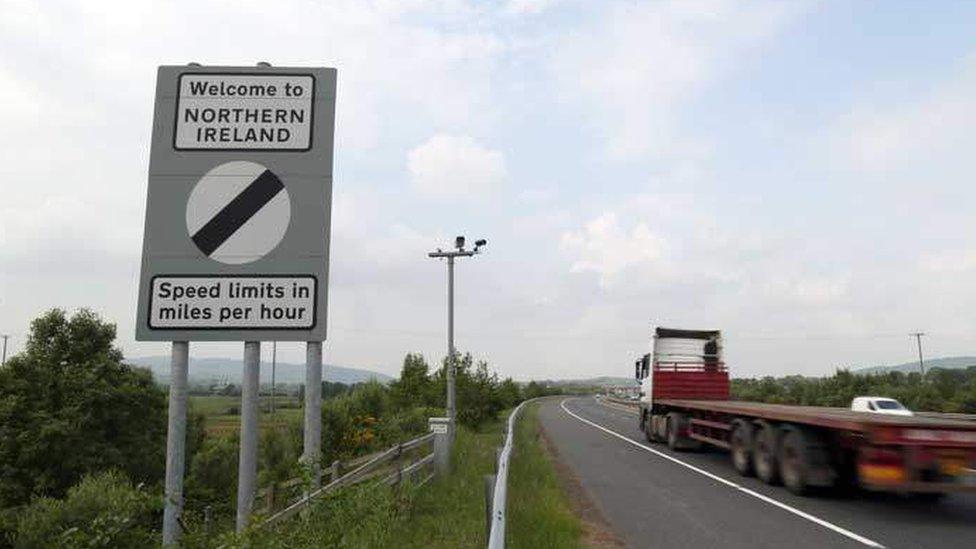Clarity call on VAT on cross-border trade after Brexit
- Published

The government is being urged to explain VAT arrangements on cross-border trade after Brexit
The government is being urged to explain what arrangements it will put in place for the collection of VAT on cross-border trade after Brexit.
Currently the UK is part of a single EU VAT area.
This means that when a UK product is exported to another EU country, VAT is paid where the product is consumed.
When the UK leaves the EU, VAT liabilities will have to be assessed by customs officials at borders unless some new arrangement is in place.
That could further complicate the UK government pledge to avoid a hard border after Brexit.
The House of Commons European Scrutiny Committee said that "absent an unprecedented agreement", UK goods sent to the EU would face VAT controls at the border for the first time since 1992.
It warned that would pose "particular problems at the border on the island of Ireland".
Post-Brexit relationship 'entirely unclear'
The EU's "backstop" option for the border said that in the absence of a deal, Northern Ireland could remain part of the single EU VAT Area and continue applying EU VAT law indefinitely.
However, this would effectively shift the customs border to the Irish Sea, something which the prime minister said she could not accept.
The committee said the government's desired post-transition relationship with the EU on matters of VAT "remains entirely unclear".
VAT arrangements on cross-border trade after Brexit remain unclear
It said the UK essentially faces a choice between taking back control and erecting new barriers to trade with the EU.
On the one hand the UK could come to an agreement on continued adherence to the EU VAT Directive and so avoid the need for VAT-related border controls.
'Substantial barriers to trade'
However, this would come at the cost of having to follow legislation over which the government would have "substantially less influence" than it does now.
On the other hand the UK could decide to leave the EU VAT system entirely which the committee said is likely to mean "new and substantial-barriers to trade."
Earlier this year, the EU signed a deal with Norway to cooperate in tackling VAT fraud.
However the committee said that replicating that deal for the UK would not meet the government's requirements in avoiding the need for customs infrastructure.
- Published14 August 2017